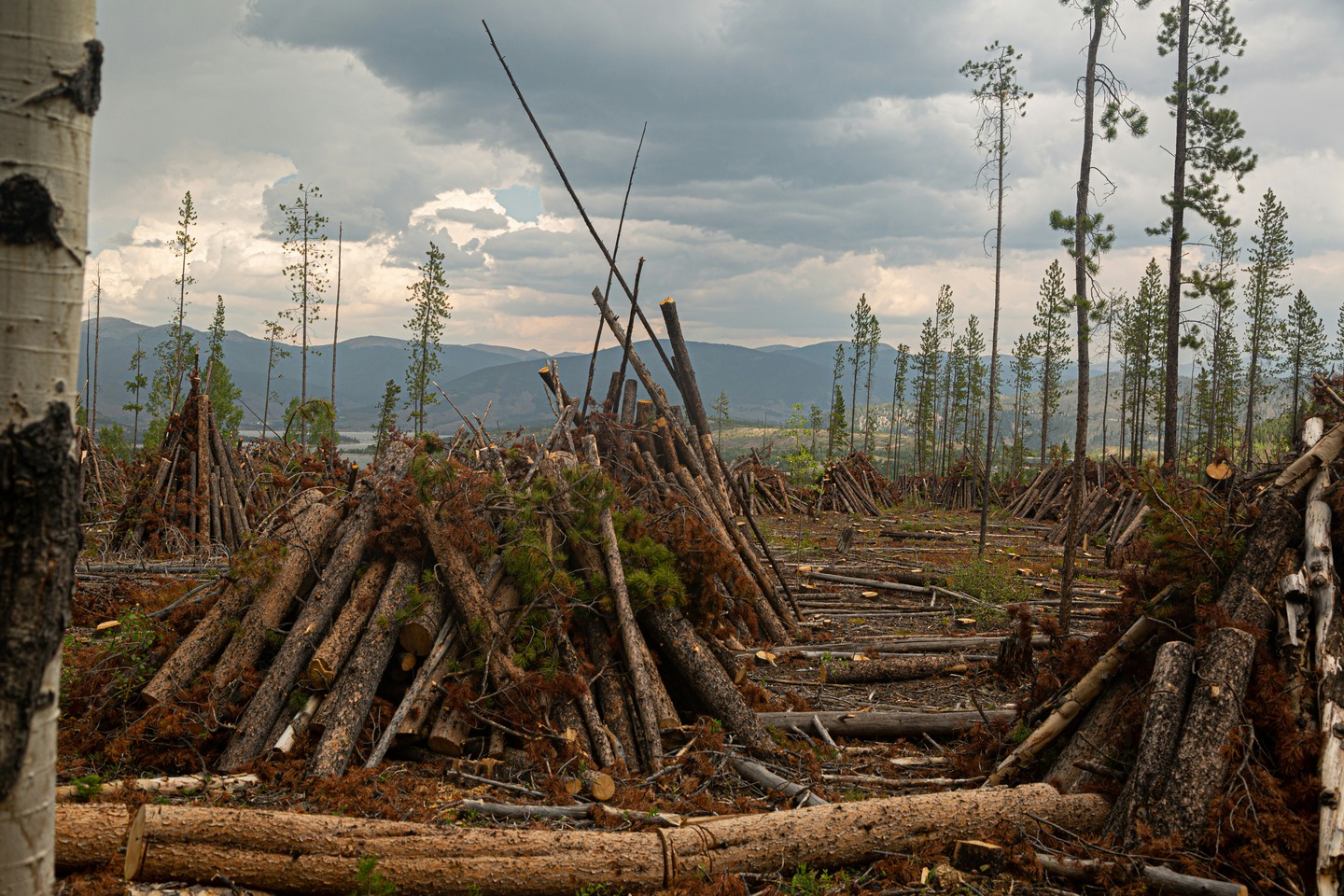2022 TOP 10 BLOG
Ecocide: Can The International Criminal Court Hold Polluters Accountable For Mass Environmental Destruction?
VJEL Staff Editor: Rajeev Venkat
Faculty Member: Emily Spiegel

Anthropocentric climate change and pollution are the most pressing issues of our time. As global temperatures continue to rise, ecosystems across the globe face existential environmental disasters. The Stop Ecocide Foundation and an Independent Expert Panel comprised of twelve lawyers from around the world have proposed a bold solution to confront the urgent crisis. The proposal is to make “ecocide”—mass environmental destruction—an international crime enforceable by the International Criminal Court (ICC). The Rome Statute, the founding treaty of the ICC, currently enumerates genocide, war crimes, crimes against humanity, and crimes of aggression as violations of international criminal law. The Stop Ecocide Foundation seeks to amend the Rome statute to incorporate ecocide among these international crimes.
The proposed language defines ecocide as “unlawful or wanton acts committed with knowledge that there is a substantial likelihood of severe and either widespread or long-term damage to the environment being caused by those acts.” The statute’s definition would represent a “historic shift” in the ICC’s jurisdiction from exclusively human-centered crimes to include crimes against other species and the environment itself. In pushing for this shift, the Stop Ecocide Foundation revitalizes efforts dating back over fifty years to make ecocide an internationally recognized crime.
History of Ecocide
The concept of ecocide emerged during the Vietnam War. The term was first coined in 1970 by American biologist Arthur W. Galston to condemn the widespread harm caused by the United States’ use of “Agent Orange” in the Vietnam War. Agent Orange was a powerful herbicide used by the U.S. military to destroy forest cover and crops. The U.S. military sprayed 20 million gallons of Agent Orange and various herbicides over South Vietnam between 1962 and 1972. The herbicides destroyed five million acres of forest—nearly the size of Massachusetts—and also destroyed 500 thousand acres of crops. Hundreds of tree species and between twenty and ninety million cubic meters of timber were destroyed. As mass defoliation decimated forest cover, heavy rains caused soil depletion and erosion. This led to the growth of invasive grass species that further hampered forest regeneration. Despite reforestation efforts throughout the decades, Vietnam has yet to reach pre-war levels of forest cover.
In 1972, Swedish Prime Minister Olof Palme referred to the Vietnam War as “ecocide” in his opening speech at the United Nations Stockholm Conference on the Human Environment. Professor Richard Falk at Princeton University would be the first to propose the crime of ecocide formally one year later. In Professor Falk’s proposal, he stated that “the pursuit of ecological quality requires international guidelines and procedures for cooperation and enforcement . . .” However, efforts to bring about such international standards stagnated. In 1985, a UN sub-commission rejected the addition of ecocide to the Genocide Convention. In 1991, the International Law Commission rejected the addition of ecocide as an independent crime. Throughout the 1990s, some countries—including Vietnam, Russia, and many former Soviet states—implemented domestic ecocide laws. However, a body capable of enforcing international law has yet to recognize ecocide as a crime.
The International Criminal Court
The passage of the Rome statute established the ICC in 2002. Today, 123 countries are parties to the Rome statute. The ICC has the power to launch investigations into alleged violations of its recognized international crimes. The ICC can even investigate nonmember countries with the authorization of the UN Security Council. Once the ICC opens an investigation, the prosecutor can collect evidence, issue summons, and issue arrest warrants. Unlike the International Court of Justice, which only sees disputes between states, the ICC has the power to prosecute individuals. However, the ICC’s jurisdiction is limited to only when national legal systems are “unwilling or unable” to try a case.
To expand the ICC’s jurisdiction to include ecocide, ICC member states must amend the Rome Statute. The amendment process is a considerable hurdle. First, one of the 123 member states will have to submit a definition to the United Nations’ Secretary-General. Second, the proposal must be voted on by a majority of ICC members. Third, once a final text is agreed upon, two-thirds of member states must vote in favor. Finally, once the vote is ratified, states may enforce its terms a year later. Ecocide will become a criminal offense in member states if this process is fulfilled.
Can the ICC Effectively Mitigate Environmental Disaster by Prosecuting Ecocide?
The Stop Ecocide Foundation’s proposal seems to have garnered mixed reactions. On the one hand, the inclusion of ecocide into the Rome statute offers a venue for private individuals to be held accountable for mass environmental damage. ICC prosecutors will have the power to open investigations and collect evidence of such wrongdoings. The ICC can try individuals such as CEOs, corporate executives, and members of states who are responsible for environmental crimes. The threat of being investigated for ecocide may serve as a practical deterrence to such high-profile individuals. Furthermore, including ecocide as an international crime akin to genocide would represent a powerful cultural shift that affirms a global commitment to protecting our common ecosystems.
However, some question the efficacy of the Stop Ecocide Foundation’s proposal. The world’s leading polluters (the United States, Russia, China, and India) are not court members and remain outside its jurisdiction. These states may choose not to cooperate with ICC enforcement of ecocide. Moreover, the ICC’s inability to try corporations may prove particularly ineffective in combatting the modern driver of environmental disaster—climate change—because environmental harms caused by greenhouse gas emissions are delayed and far-reaching. This makes causation difficult to legally prove, and this difficulty is significantly magnified when attempting to attribute causation to an individual’s decisions instead of the larger corporate entity. Just 100 companies have been the source of more than 70% of greenhouse gas emissions since 1988. The ICC’s jurisdiction may be too limited to meet the urgency of climate catastrophe. Furthermore, some also criticize the ICC as an institution that persecutes and demonizes the global south. Out of the forty individuals the ICC has indicted, all are from African countries. Many reasonably fear that this pattern would continue in the enforcement of ecocide.
Looking Forward
For now, the ICC has yet to take up the ecocide proposal. Increasing public pressure and upcoming environmental litigation in 2022, however, may motivate the ICC to consider the proposal. For example, youth activists in Portugal have filed suit in the European Court of Human Rights against 33 EU states for insufficient government action on climate change. Additionally, just weeks before COP26, Austrian environmental group AllRise filed suit in the ICC against Brazilian President Jair Bolsonaro for destruction of the Amazon. AllRise will have to argue that Bolsonaro’s environmental destruction constitutes a crime against humanity until the Rome Statute recognizes ecocide.
The Stop Ecocide Foundation has a long and complex process ahead to incorporate ecocide into the Rome statute. Hopefully, this proposal will invigorate public and legal interest to create an international accountability mechanism for those causing mass environmental destruction. Ecocide as an international crime may be the bold solution necessary to deter acts that impend the looming global environmental crises.

